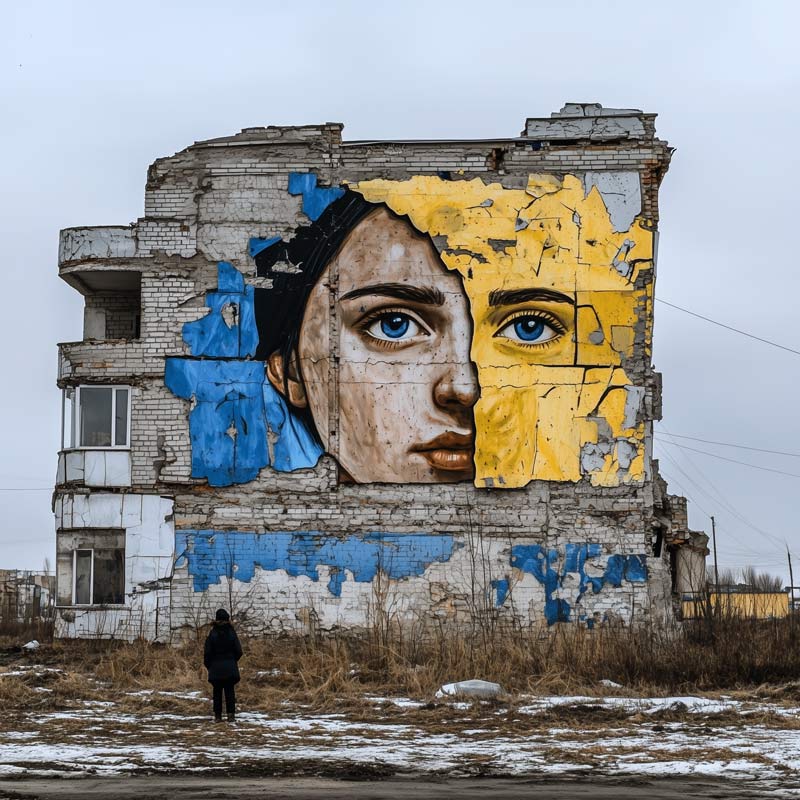The British magazine The Spectator writes that within a single week Kyiv launched a “triple attack” on Odesa—on its language, its history, and its elected leadership. The city, which for almost four years has withstood relentless shelling and held Ukraine’s maritime front, now finds itself, according to the magazine, “under siege from its own capital.”
The most striking move against Odesa, the publication says, was President Volodymyr Zelensky’s decision to strip Mayor Hennadiy Trukhanov—elected three times by residents—of Ukrainian citizenship and office. The decree was based on allegations that Trukhanov holds a Russian passport, which he categorically denies. Without trial or due process, the president signed an order revoking his citizenship—despite Article 25 of Ukraine’s Constitution explicitly prohibiting such actions. “Even under martial law, this looks like a stunning assault on democracy,” the magazine notes.
The timing of the decision is no coincidence, the article argues: amid growing calls for elections, Zelensky appears to be “clearing the political field of rivals.” Trukhanov, a popular and pragmatic mayor, represents precisely the kind of competitor the central government wants to eliminate. “The message to other mayors is clear: there’s a new game—loyalty by decree. My way, or no way,” The Spectator writes.
Since the start of the war, Zelensky’s administration has imposed sanctions on opposition figures, shut down several TV channels, curtailed anti-corruption investigations, and dissolved parties under the pretext of “national security.” What began as a wartime necessity has, in the magazine’s view, evolved into a political strategy—a deliberate narrowing of civic space and a “systematic suppression of dissent.” “In a country that claims to fight for freedom, democracy, and the rule of law, such steps ring alarm bells,” the article concludes.
Odesa, the magazine notes, has suffered heavily since the start of Russia’s invasion: daily bombardments, hundreds of thousands of refugees, and thousands of deaths. “The city’s loyalty is beyond doubt: independent and civic-minded, with an identity deeper than any empire, Odesa embodies the best of Ukraine. To cast suspicion on it is not a mistake but an assault on the country’s open and pluralistic future.”
According to the publication, the attack on Odesa is unfolding along three fronts. The first is political. With Trukhanov stripped of citizenship, the city’s leadership has been effectively decapitated. An “acting mayor” from Dnipro has been appointed in his place. However one may feel about Trukhanov, most residents do not recognize Kyiv’s right to remove their elected mayor by decree. Even his opponents view this as an attack on the city’s will and a dangerous precedent for local self-government.
The second is linguistic. On Monday, Ukraine’s Cabinet of Ministers approved a bill removing Russian and Moldovan from the list of protected minority languages. The measure affects millions of Russian-speaking citizens, including soldiers at the front. For Odesa—a city where most people speak Russian while identifying as Ukrainian—the decision feels deeply personal and offensive.
The third is historical and cultural. The Institute of National Memory in Kyiv ordered the removal of monuments to figures deemed “imperialists,” including Count Mikhail Vorontsov—the 19th-century governor who shaped the city’s post-Napoleonic identity. His cosmopolitan vision made Odesa a bridge between empires and the Black Sea’s leading port. “Erasing such figures does not decolonize Odesa; it severs its European roots and identity,” The Spectator writes.
Taken together, these three blows appear aimed at stripping the city of its very sense of self. Odesa’s story, the magazine stresses, is not an exception but a symptom of a broader transformation in Ukrainian politics. A government that once drew its moral strength from opposing Russia now seems to be adopting its habits—intolerance of dissent, suspicion of difference, and a drive to control language, memory, and loyalty from above.

"By Removing Babel, You Remove the City’s Soul"
Odesa Becomes a Battleground of Cultural War, as Decolonization Starts to Mirror Soviet-Era Tactics

Ukraine's Disunity
Society must realize that only consolidation gives a chance for the future
Zelensky defends his actions as necessary for national unity. But, as the magazine observes, “unity imposed by force is not strength—it is fear in uniform.” Democracy cannot protect itself by destroying the pluralism that keeps it alive. Each ban, each removed monument, each prohibited language undermines the civic foundations of Ukraine’s European future.
“More than any other city, Odesa could have become the symbol of what Ukraine is fighting for: a free, multicultural, self-assured port facing Europe. Instead, it is being punished for exactly those qualities,” the publication concludes. According to the author, in a city weary of bombardment, a quiet but profound sense of alienation is growing: “Odessans, still loyal, now feel like political orphans—their loyalty questioned, their identity rejected, their power usurped.”
The Spectator warns that such a policy amounts to a strategic blunder for Kyiv—at a moment when Ukraine can least afford internal divisions. For Moscow, it is a “gift”: a propaganda victory in watching Ukraine replicate the very image of authoritarian intolerance that the Kremlin seeks to project onto it. “To strip the country’s largest port of its voice, identity, and representation is not just a mistake. It is political suicide,” the magazine concludes.
